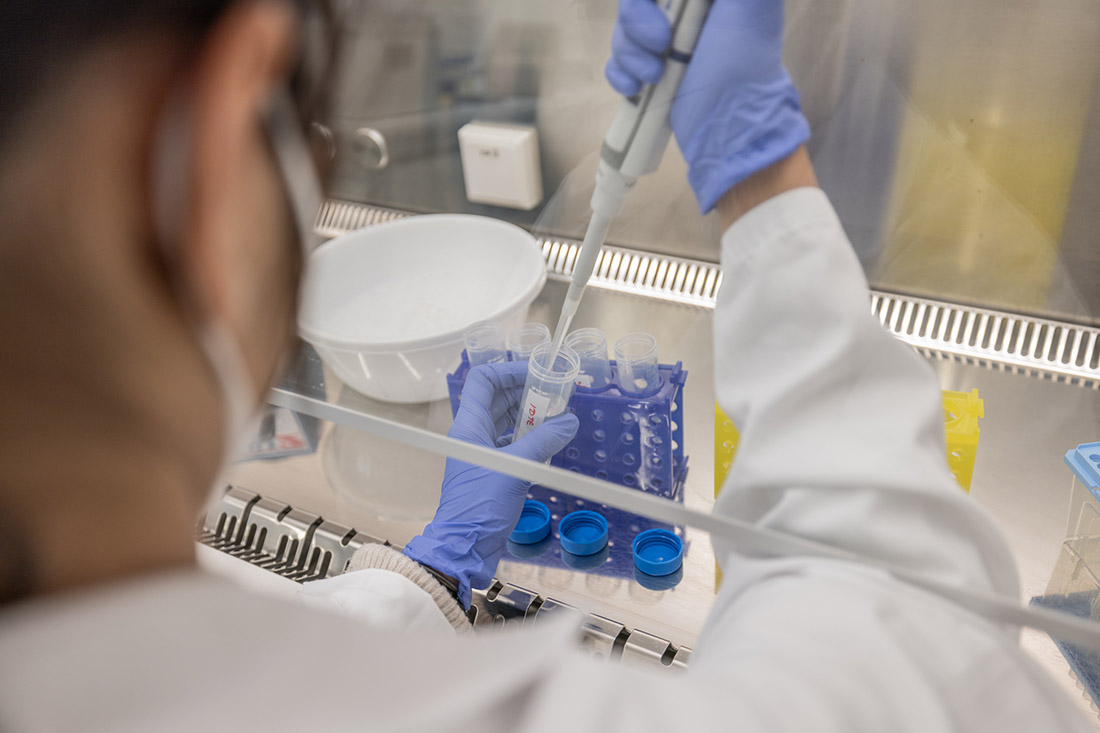Breath samples for accurate diagnoses
Every breath counts for Avelo. With AveloCollect, the start-up has developed a user-friendly, non-invasive breath collector to improve the diagnosis of tuberculosis and lower respiratory tract infections – the latter being a major cause of pneumonia, the fourth most common cause of death worldwide. The company was founded in 2020 during the pandemic by HSG graduate Melanie Aregger (CEO) and biochemist and engineer Tobias Broger (CTO) and is based in Schlieren. We have written a brief overview of the company in the current Technopark magazine Einblick.
The challenge of diagnosing deep respiratory infections
While it is relatively easy to take samples from the upper respiratory tract such as the nose or throat, these are not always representative of infections in the deeper respiratory tract. In addition, the bronchi are protected by the trachea, so it is more difficult to get instruments there without causing distress to the patient. Melanie Aregger and Tobias Broger found the solution to this problem by using the breath as a sample medium. They quit their jobs and launched their company just six months after their idea – not as a university spin-off, but completely independently on a piece of paper. They secured funding in September 2022.
Avelo has developed a nanofiber technology for its breath collector, which, like modern blood tubes, is intended to establish breath as a diagnostic sample. Doctors can use AveloCollect to painlessly collect breath samples from their patients and analyze them quickly and precisely using existing PCR tests. The breath collector requires 25-30 breaths to collect aerosols containing pathogens. This can overcome the disadvantages of sputum or lavage samples and provide accurate diagnoses for patients. This can potentially save healthcare costs and avoid unnecessary antibiotic prescriptions.
How AveloCollect works and its future
The breath sample collected in AveloCollect is placed in a PCR machine, which detects the pathogens. RNA and DNA are amplified there, similar to the PCR test for COVID-19. A result can be available in 1.5 to 2 hours, depending on the machine and personnel.
In order to establish breath as a diagnostic sample, Avelo has entered into partnerships with leading PCR test providers. A prototype of AveloCollect has already been tested in clinical proof-of-concept studies, including for tuberculosis in South Africa. Formal product development of the device is expected to be completed in the second quarter of 2024, followed by extensive clinical validation studies.
Links
Avelo: https://www.avelolife.com
To the Technopark magazine Einblick: https://www.technopark.ch/news/zeitschrift-einblick/

